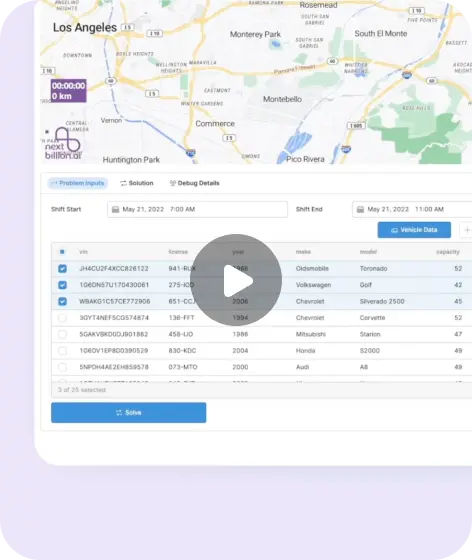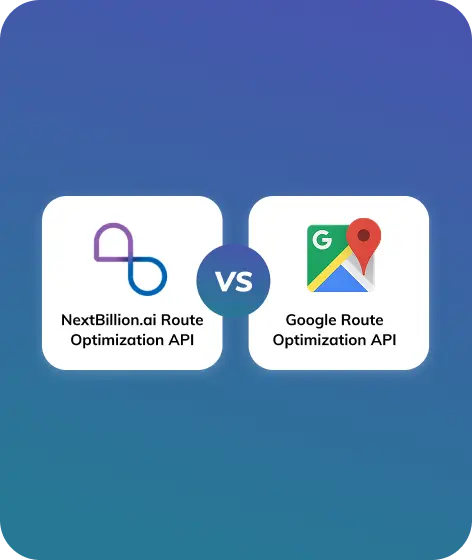Table of Contents
What is Fleet Management?
Fleet management is the process that allows organizations to manage all the information associated with vehicles and assets. With the advancement of technology, businesses are using fleet management software that provides better visibility into vehicle and asset utilization, improves maintenance planning, and manages the cost of ownership. It is an effective solution for the logistics industry since it enhances the customer experience, maximizes delivery capacity, and improves shipment productivity while maintaining low operating costs.
Fleet management involves a series of different tasks for organizations that rely on transportation, like controlling costs, increasing efficiency and productivity, reducing risks in vehicle acquisitions, fuel management, etc. It covers many industries like transportation, sales and service, oil and gas, emergency services, and many more. It is also responsible for efficient drivers and compliance management, increasing operational efficiency and reducing environmental impact.
Core Components of Fleet Management
Fleet management includes creating a complete system that organizes groups of cars, trucks, trains, or marine vessels for transporting goods. Its core components are:
- Management Softwares
- GPS
- Tracking Device
- Vehicles or Vessels
- Operators and Engineers
Features of Fleet Management
The fleet management system offers several ways to track and manage vehicles, from routine maintenance to new purchases and driver management. Some of its features are:
- Fuel Management: The fleet management system provides vehicle and fuel usage trends. It analyzes the behaviors that affect fuel consumption and proposes optimal solutions to manage fuel usage.
- Route Monitoring: These systems monitor vehicle movement and schedules to plan routes optimally. It also provides real-time vehicle updates to drivers.
- Vehicle Tracking: Through GPS, fleet managers can easily track vehicles, monitor their performance, and identify any potential maintenance issues.
- Driving Behaviour Analysis: Fleet managers also analyze driving behavior and assign scores to each driver based on their driving habits and behaviors.
Benefits of Fleet Management
Effective fleet management is essential for the logistics industry since it enhances the customer experience, maximizes delivery capacity, provides real-time visibility, and improves shipment productivity while maintaining low operating costs. Some of its benefits are listed below:
- Clear Operational Visibility: The fleet management software provides real-time information that helps fleet managers gain clear insights into operations. This helps in ensuring operational efficiency and visibility.
- Safe & Reliable Vehicles: It helps businesses focus on regular maintenance, which reduces the risk of vehicle breakdowns and accidents. Hence, it ensures the safety and reliability of vehicles.
- Improve Driver Safety: Fleet managers use engine diagnostics and vehicle trackers to monitor drivers’ performance and identify their driving habits and behaviors. This improves driver safety and reduces the number of road accidents.
- Optimized Productivity: Delays, idling, and downtime impact the driver’s productivity and increase operational costs. The fleet managers analyze the real-time data and optimize the organization’s and driver’s productivity and efficiency.
- Better Cost Management: The main objective of fleet management is to streamline operations by monitoring real-time data. It provides better visibility into vehicle and asset utilization, improves maintenance planning, and manages the cost of ownership.
- Improves Customer Experience: With the help of GPS, it becomes effortless to track the drivers and provide an optimal and cost-effective route that enhances the customer experience and company reputation.
Challenges of Fleet Management
Some significant challenges faced by fleet management are:
- Fuel Consumption: One of the most challenging tasks is managing fuel costs and identifying practical ways to decrease this expense. Fuel prices are volatile and difficult to forecast. Even the most experienced fleet manager cannot guarantee accurate fuel forecasts.
- Driver Safety: Efficient fleet management promotes driver safety. Fleet managers must implement safety education programs, understand regulations and predictive analysis to prevent accidents, and reduce repair costs, downtime, and liability.
- Cost Reduction: It is difficult for fleet managers to reduce costs because of changing budgets and forecasts. Factors like fluctuating vehicle costs, a volatile fuel market, and unexpected expenses make it difficult to analyze and make valuable decisions.
Fleet management is crucial for the smooth flow of the supply chain and satisfying customer demands. It maintains communication among the different actors involved in the supply chain and increases efficiency, service quality, and the company’s profitability. Fleet managers also play an important role in managing vehicles and drivers and provide valuable solutions to improve the company’s productivity while reducing operational costs.
Explore NextBillion.ai’s Fleet-Management Solutions.
We know that every business is different and we care about your unique needs.
With NextBillion.ai’s Map API you get- Large Distance Matrix API with a Matrix size upto than 5000*5000
- Optimal routes with accurate ETAs
- Flexible navigation SDK that’s easy to integrate and ready to use for developers
- Quick and accurate location data
- Track and trace routes taken along with other map attributes
- Create custom tiles for your interactive maps. Personalized to fit your brand aesthetic.




